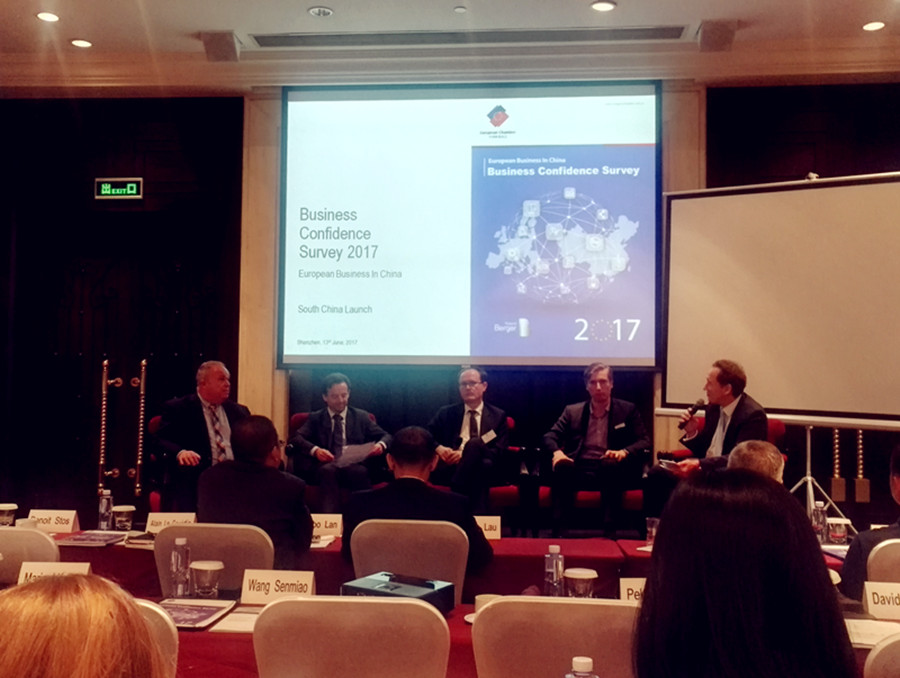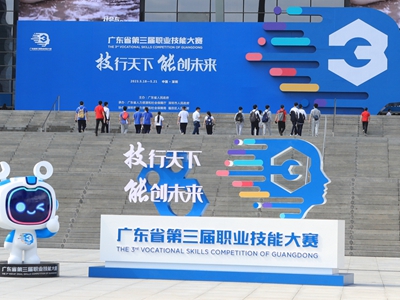SZ ‘has the most transparent bus. environment’
Writer: Chen Xiaochun
Email of the writer: 654789759@qq.com

THE European Business in China — Business Confidence Survey 2017, featuring over 500 companies, was jointly released by the European Chamber and the Shenzhen International Investment & Promotion Association at Intercontinental Hotel in Shenzhen yesterday.
“Shenzhen has the most transparent business environment for foreign firms, with 49 percent of the respondents voting for it and Guangzhou, and 27 percent of votes ranking it second,” said George Lau, chair of the South China Board of the European Chamber.
Nearly 80 percent of the members said they would choose to remain in South China if they expanded their business. And less than one in five respondents is planning to relocate their business outside of South China.
“275 Fortune Global 500 companies have made investments in Shenzhen. Some of them are 2016 Shenzhen-grown Fortune Global 500 members like Ping An, Huawei, China Merchants Bank, Amer and Vanke,” said Lan Zhaohua with Division 2 of Invest Shenzhen during a speech, which highlighted four concepts, namely “openness,” “vitality,” “innovation” and “low-carbon growth.”
Lan added that 95 percent of Shenzhen’s long-term population comes from outside the city. The average age of Shenzheners is 34 years old, and over 90 percent of the population is of working age. In addition, there are over 150,000 foreigners, and Hong Kong, Macao and Taiwan residents living on a permanent basis in the city.
According to the survey, amid recent gloomy predictions about China’s slowing economy, European companies reported that business still improved last year, with over 50 percent of enterprises achieving higher sales than in 2015.
Among the companies, information and communications technology, automotive, machinery, cosmetics, environmental and retail firms all saw growth in revenues. Sectors such as travel, aerospace and education reported increases in profits that ranged from 70 percent to 100 percent.
Even so, European companies still remain apprehensive about the future of China’s economy. More than 60 percent of respondents ranked China’s slowing economic growth as their number one cause for concern, which was closely followed by the ongoing struggle to find and retain qualified employees, a problem aggravated by demands for higher compensation among local hires.











